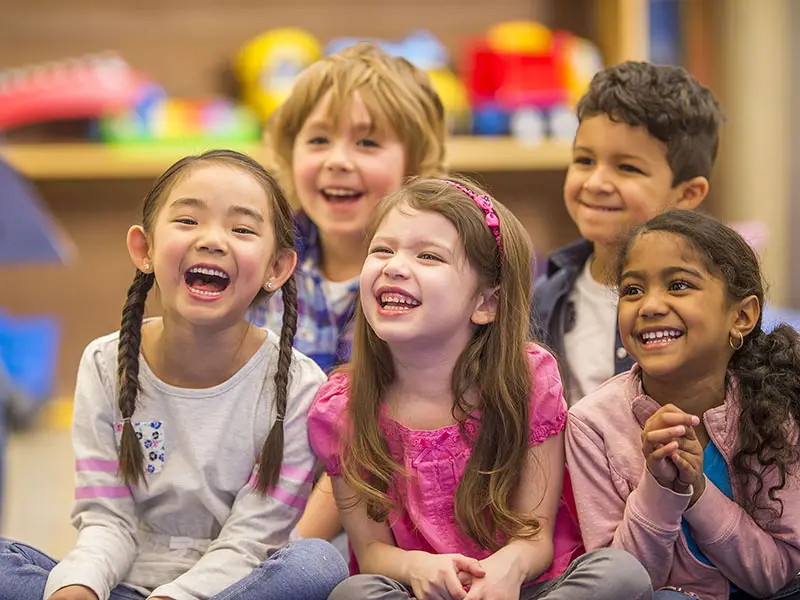Winter English courses offer an important opportunity for children to improve their English language skills by making efficient use of their time outside of school. Winter courses are usually held after school hours or on weekends and are equipped with activities to support children's language skills. The main features of winter English courses for children are:
Age-Appropriate Curriculum
Winter English courses for children are organized in accordance with their age groups. Age-appropriate content and teaching methods allow children to better understand the lesson. These courses are generally divided into groups such as 4-6 years old, 7-9 years old, 10-12 years old and supported with activities suitable for the language levels and ages of the children.
- Kindergarten and Primary School Level: Learning is provided with more game-based and visual materials. Activities such as songs, coloring activities, fairy tales and drama are used.
- Middle School Level: In this age group, a wider vocabulary and grammar rules are emphasized. Short stories, simple dialogues, and basic writing exercises are done.
Education Supported by Games and Activities
Winter English courses for children should be supplemented with fun activities and games. Children find learning easier and more fun when they play, which makes language learning more effective.
- Winter Themed Activities: Activities suitable for the winter season attract the attention of children. Teaching English becomes fun for children with activities such as snowman making, Christmas decorations, winter-themed stories.
- Language Learning Games: Children's vocabulary is developed with activities such as English word cards, puzzles, matching games.
- Drama and Role-Play: Drama and role-playing activities are organized so that children can practice speaking English. In this way, children gain confidence in expressing themselves in English.
Program Supported by Small Groups or One-to-One Tuition
Children's English courses are taught in small groups or with the option of one-to-one tuition. Small groups allow the teacher to engage with each student individually. Children can also practice speaking English by interacting with their peers.
- Classes of 5-10 Students: Small group work ensures active participation of children in lessons. In small classes, it becomes easier for each child to be involved in the lessons.
- One-to-One Lessons: One-on-one tutoring can be a good option, especially for children who have difficulty concentrating or need more support. The teacher prepares a special lesson schedule according to the child's language level and needs.
Leveling and Progress Tracking
Placement tests are held so that children can receive an education suitable for their English language level. Winter English courses prepare curriculums according to each child's level, allowing children to progress comfortably. In addition, the development of children is regularly monitored and support is provided in the areas where they are deficient.
- Placement Tests: Placement tests at the beginning of the course provide a start suitable for the child's level.
- Regular Progress Reports: Teachers, who follow the development process of children, identify the deficiencies of the children at regular intervals and give feedback to the parents.
Fun Materials and Visual Support
Fun materials that will attract the attention of children should be used in winter English courses. Cartoons, storybooks, picture cards and songs increase children's motivation to learn. Children learn more easily with visual and auditory materials.
- Storybooks and Cartoons: Language skills are supported with English storybooks or cartoons suitable for children's levels. These resources contribute to the development of listening and reading skills.
- Flash Cards and Posters: Winter-themed English vocabulary cards or posters make children's vocabulary learning fun.
- Audiobooks and Songs: Children's songs or audiobooks in English are beneficial for pronunciation development and listening skills.
Speaking and Pronunciation Practice
One of the areas where children have the most difficulty learning the language is correct pronunciation. Winter English courses focus on improving children's speaking skills. Children gain confidence in language learning by practicing speaking English in a relaxed environment.
- Winter-Themed Dialogues: Children can practice speaking with simple dialogues about the winter season. For example, they are made to share their own thoughts with questions such as "What do you like to do in winter?"
- Songs and Rhymes: Children learn the correct pronunciation of words through English songs and rhymes.
- Speaking Activities with Games: Games such as drama and role-playing enable children to express themselves in English and improve their pronunciation.
Social Activities and Group Work
Winter English courses include group work and social activities that will enable children to socialize. By speaking English in a group, children both improve their language skills and gain social skills.
- Group Games and Activities: Activities such as team games and project work allow children to communicate with each other in English.
- Arts & Crafts: Children learn English vocabulary in activities such as crafts or painting. For example, when painting a winter-themed painting, English words such as snowflake, snowman, glove are used.
- In-Class Competitions: In-class competitions can be organized on English vocabulary or speaking practice. These types of activities help children learn while having fun.
Recognizing Achievement and Motivating Rewards
Children are more motivated when their achievements are recognized. Winter English courses can reward children's development and increase their commitment to lessons. Appreciating achievement boosts children's self-esteem and encourages them to learn English.
- Certificates of Attendance: At the end of the course, children can be given a certificate of attendance or a certificate of achievement.
- Small Rewards: Small rewards given at the end of the lesson make children more motivated.
- Positive Feedback: When instructors give positive feedback to children, it increases children's enthusiasm for learning English.
Winter English courses for children should offer a fun, supportive and motivating environment. Curriculum prepared with age-appropriate content should be supported by fun activities and games. In addition, group work and games that will improve children's social skills make the language learning process more effective. Winter English courses, supported by the right materials and positive feedback, increase children's interest in English and provide permanent learning.



